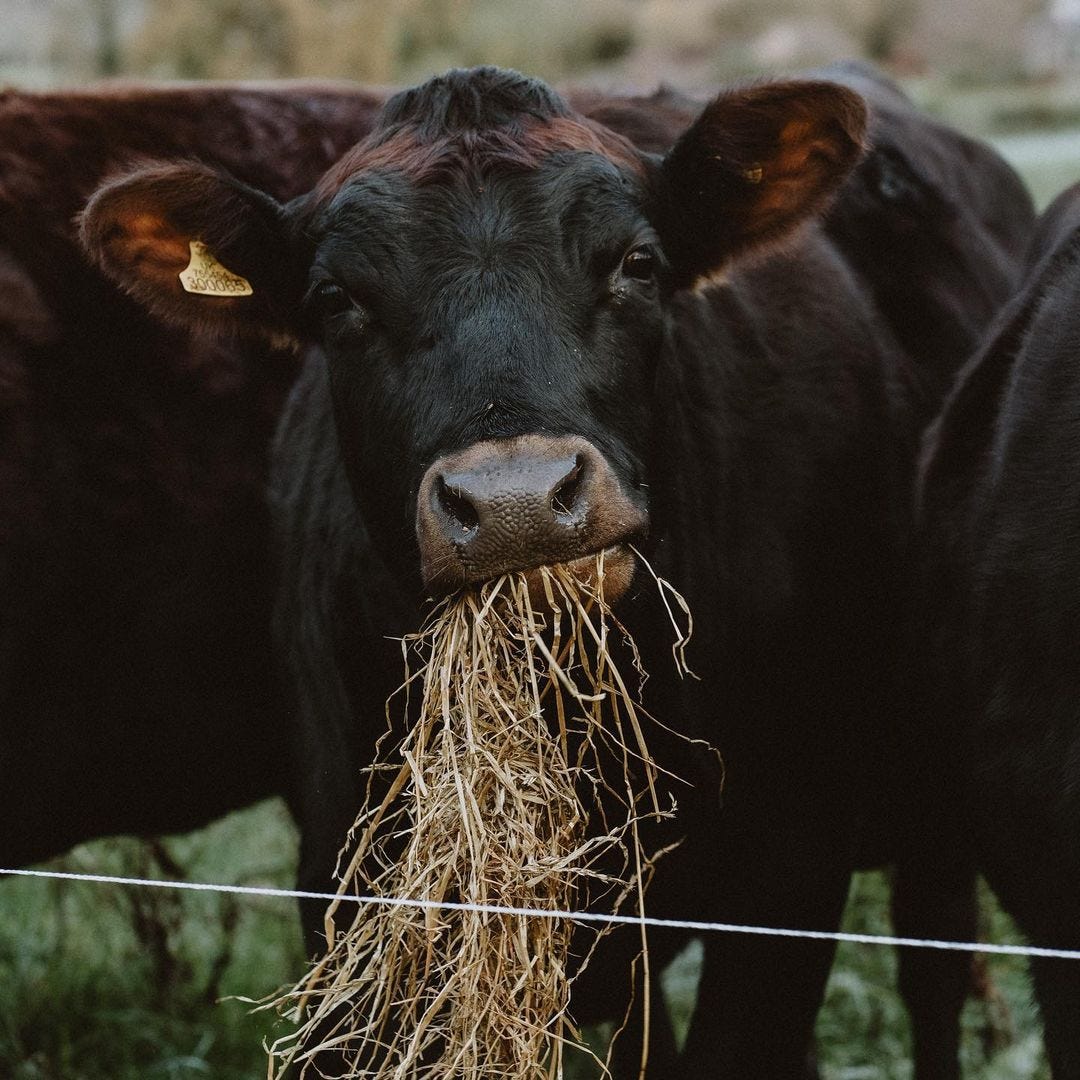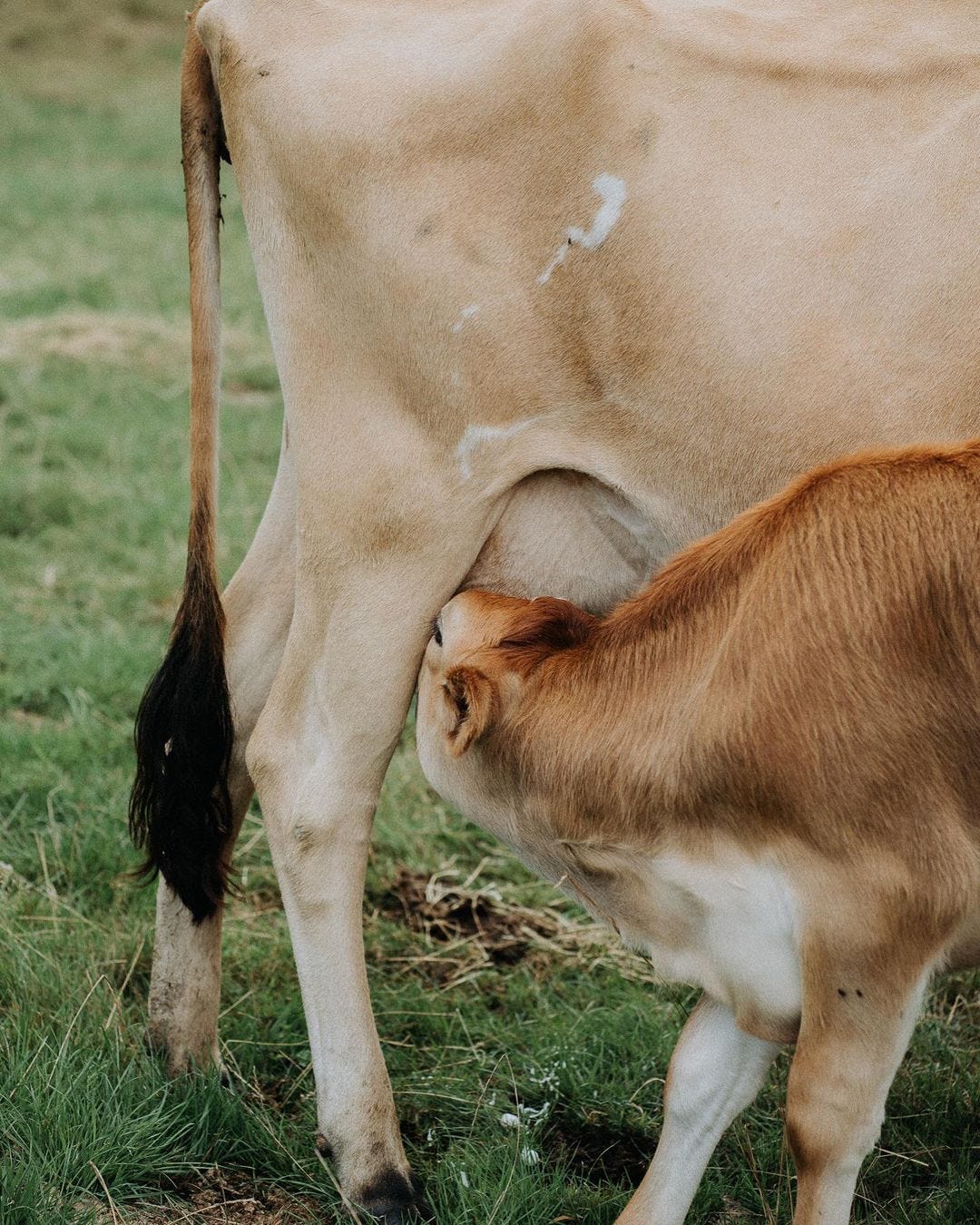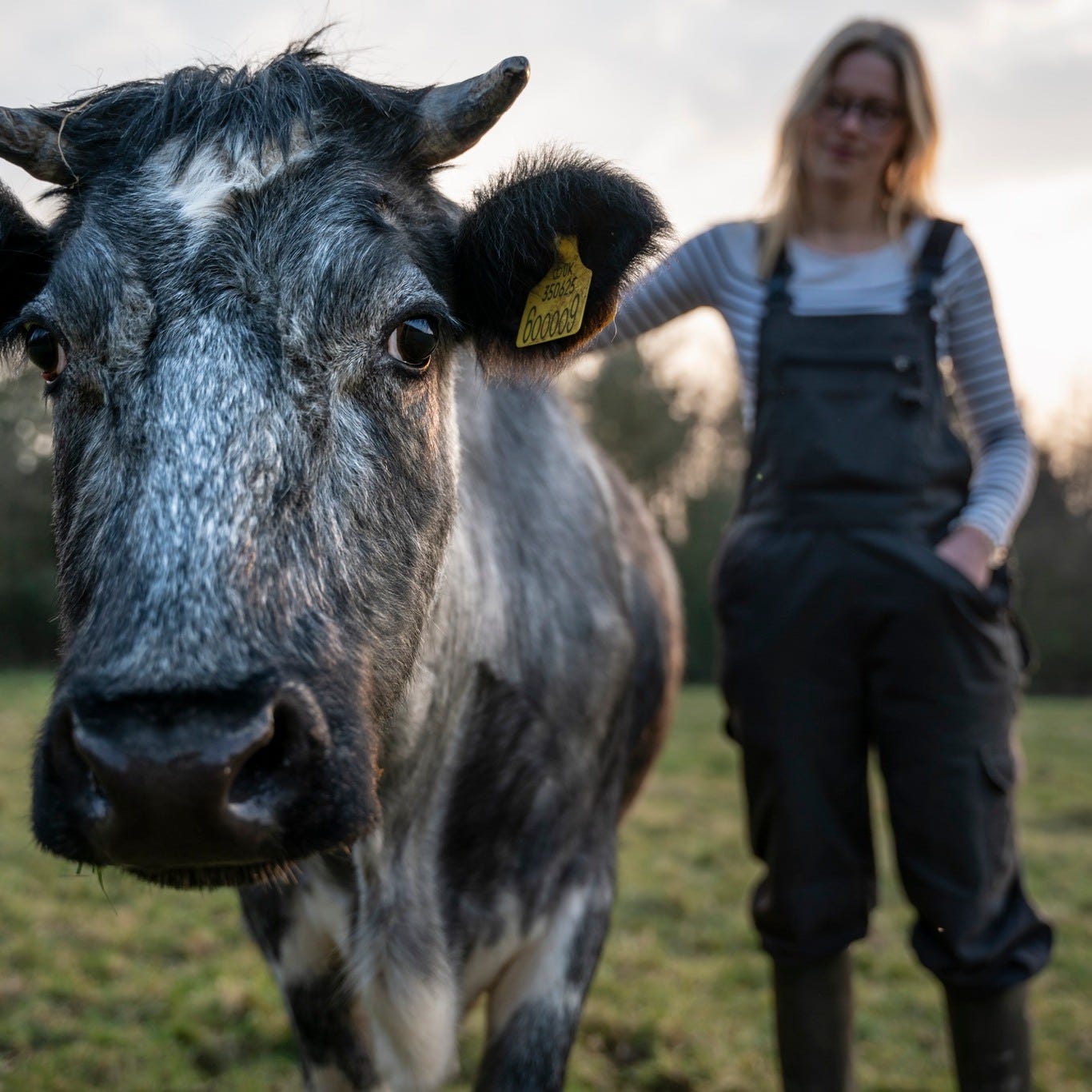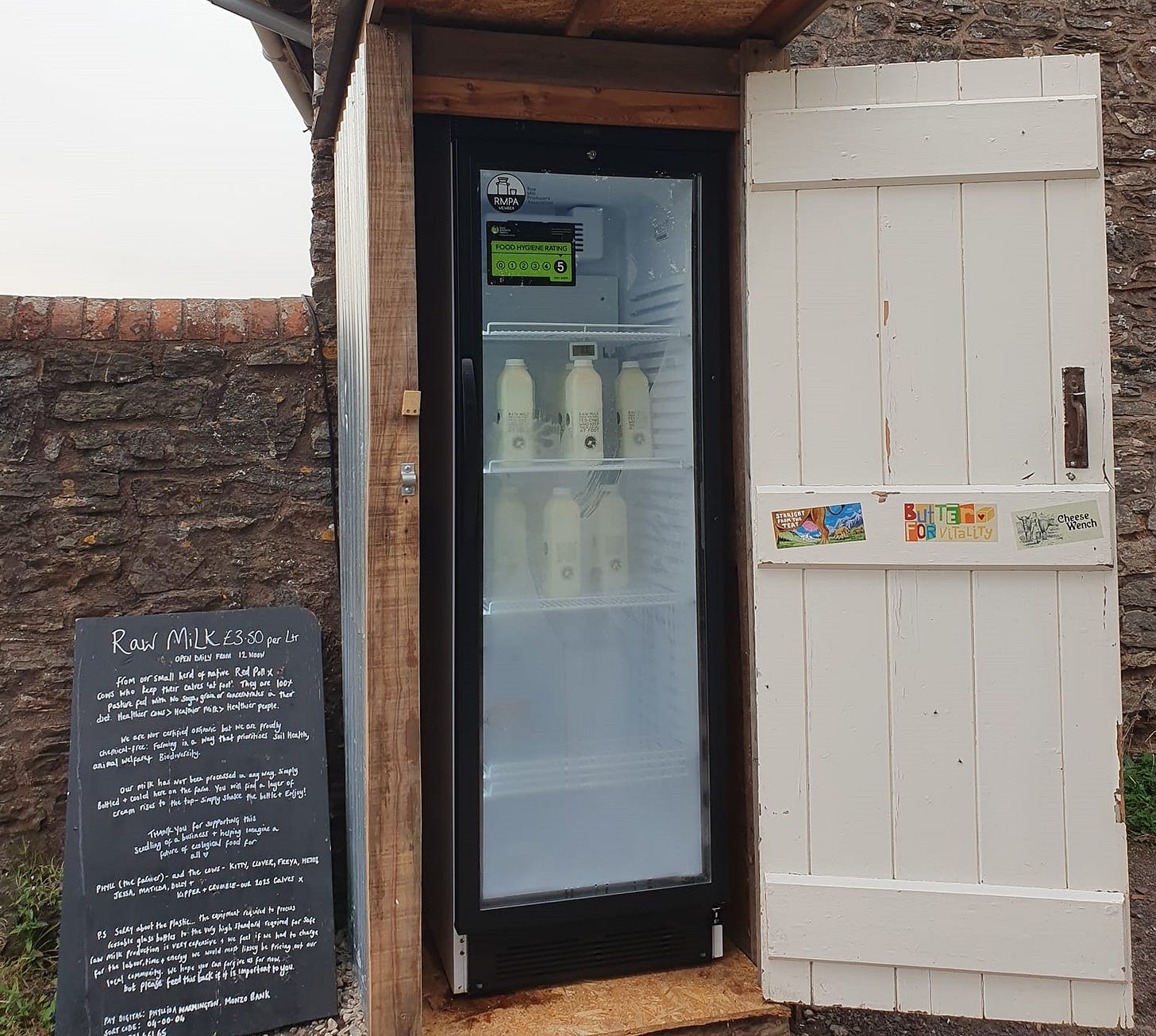Should we be paying £3.50 for a litre of ethical milk? [WFJ #82]
Somerset's newest micro dairy highlights the difference between what milk costs and how much we pay for it
Given one of the food items it’s famous for, Somerset – it won’t surprise you – is very much the land of the dairy cow. Exact numbers for the county are difficult to gauge, but we do know about 40% of the UK’s entire dairy herd is in Somerset and the rest of the South West.
Unfortunately, that also means a significant amount of animal neglect occurs in the region. Even at the odd organic dairy farm, evidence has shown cattle ‘aggressively handled’, among other far more grisly incidents.
Perhaps this is of little surprise, considering how much we tend to pay for milk (as little as 39p per litre off the shelf currently). Milk prices are constantly kept artificially low by supermarkets, who often use it as a loss leader in an effort to tempt more purchases. While the appropriate amount of justice can and should be levelled at animal abusers, it’s not unfair to say supermarkets are complicit in the system that results in these outcomes.
Outside of the conventional market environment however, attitudes are improving. Among the best examples of that is Somerset’s very first official cow-at-foot dairy – that being Cothelstone Micro Dairy outside Taunton – which started trading a few weeks ago.
Simply put, a ‘calf-at-foot’ or ‘cow-calf’ dairy, is one that does not, contrary to 99% of dairy farms, permanently segregate the calf from its mother more or less at birth. The idea is to reduce the amount of stress experienced by the cow and her calf, which are otherwise fairly plain to see in the mother’s calls and the calf's increased heart rate on separation.
“It was kind of a marrying of the ideological and emotional,” Phyllida Warmington tells the WFJ when asked why she’s using the cow-calf method at Cothelstone. “I think it's probably becoming more relevant in the conversation around dairy farming and the social licence around it.”
As opposed to conventional dairy farms, which milk their cows up to three times a day and yield from them around 10,000 litres of milk annually (as the ubiquitous Holstein-Freisian breed is typically able to do), Phyllida milks her Red Poll and Jersey crosses once daily, and gets about 3,500 litres from each of them a year, or “between eight and twelve litres a day from each cow.”
This leaves more for the calf, but of course at the expense of being able to sell that milk. Because Cothelstone is at such a small scale (currently milking six cows), rearing male calves for beef (rather than slaughtering at birth, as is common), and farming to organic and regenerative principles, the eventual litre of milk is priced at £3.50 – almost five times what many of us are used to paying in the supermarket.
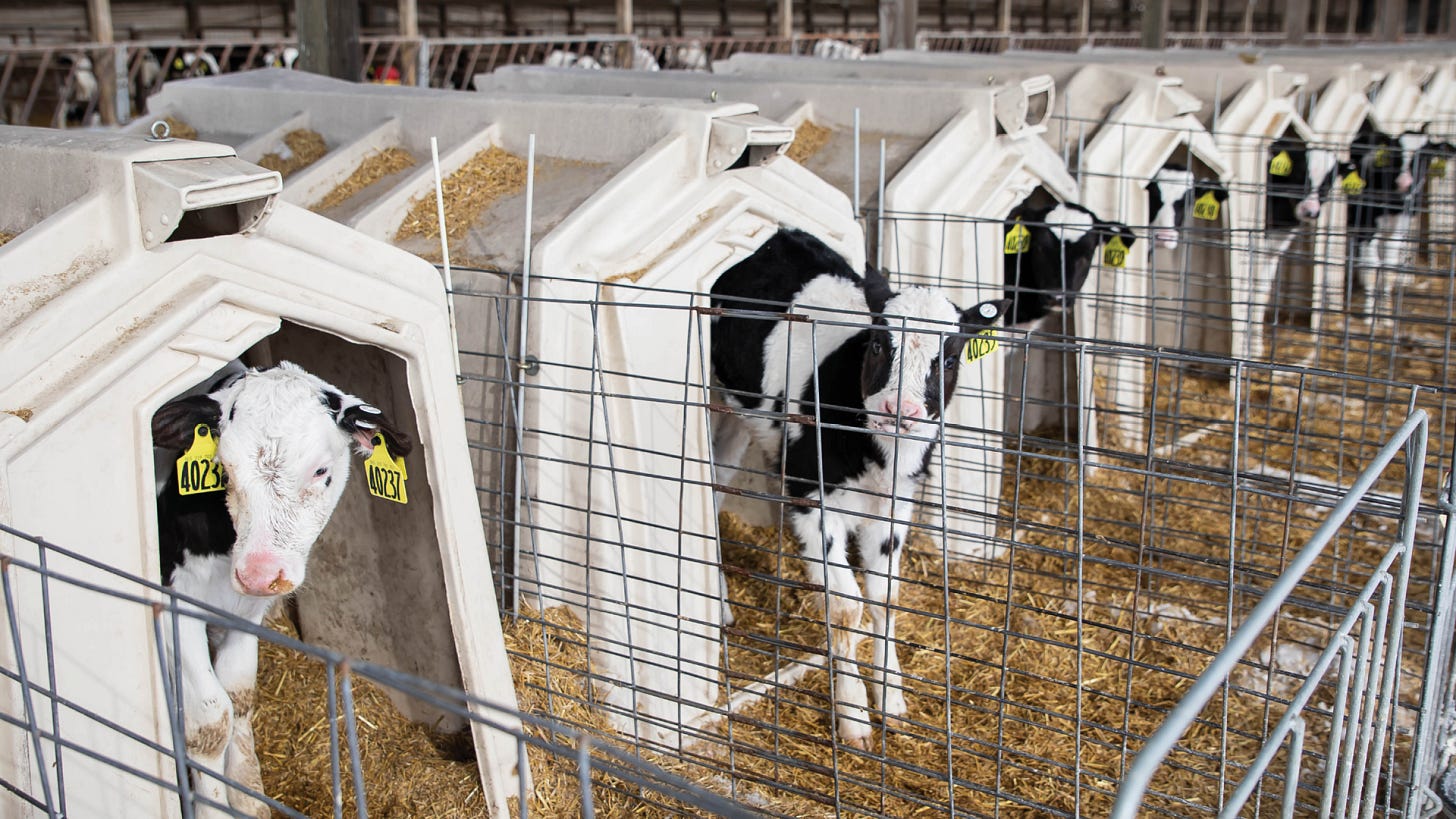
Therein lies much of the problem – supermarket milk does not reflect the cost of actually producing milk. And especially not on what you might consider an ethical scale. Even as cheap as it is, farmers receive about 8% of the money spent on a product in the supermarket. Not only does this disincentivise more ethical and sustainable practices, it means producers operating even outside of the supermarket buyer’s influence are forced to lower their prices and principles in order to compete.
“As a small producer,” says Phyllida, “it’s really hard to price your milk without seeing it through the lens of the price of supermarket milk. And [communicating that] what I produce is quite an incomparable product. But actually, people have been really receptive to the price.”
Hannah Steenbergen, whose regenerative beef business Meadowsweet Farming Co. near Witham Friary is planning on selling raw Jersey milk, reiterates: “To be really ethical it also needs to be financially viable,” she tells the WFJ. “Otherwise, it’s unethical and unsustainable for farmers to be working underpaid overtime. Milk needs to be priced to reflect this.”
What else does this mean for Somerset farmers that are beholden to prices dictated by the market? A lack of resilience, for sure. Milk prices notoriously fluctuate from month to month (in July this year they were at just over 35 pence per litre, whereas in December they were well over 50 pence per litre), making the very livelihood of the conventional dairy farmer more than a bit perilous. Recent examples can illustrate – when milk prices abruptly fell in the spring, Wincanton farmer Tom Kimber told the BBC, “Once again, we’re on a knife edge.” Seeing as Tom was set to lose £160,000 a year at the behest of the market, it’s a wonder dairy farmers don't go on permanent strike.
Though they largely skirt around seesaw prices by selling direct, for the growing number of cow-calf dairies in the UK there is still the question as to whether their USP fully answers the ethical conundrum of dairying.
For instance, it’s thought that keeping cow and calf together until adolescence actually creates more stress, as it’s had a chance to properly bond with its mother. One cow-calf dairy is not like the other, however, and in Cothelstone’s case, the cows and their calves are separated each night to prevent calves guzzling more milk than they need. “There's a strand of electric fence between them and the cows,” says Phyllida, “so they can see each other and sniff each other and lick each other – just not feed.
“Like anything, if [cow-calf dairying] is done really well, it can be fantastic,” Phyllida adds. “And if it’s done badly it could result in being more stressful. I don’t think it’s a magic solution to good animal welfare. My experience of dairy breeds, like with [pure breed] Jerseys, is that when they have a calf on them, they can lose condition quite quickly because the calves take so much milk. It's interesting because you have, in theory, a really ethical choice, but potentially it’s not so good on the welfare of those cows if they end up pretty skinny.”
Though this muddies the waters of what’s ethical and what’s not, the principle clearly still resonates with some people – Cothelstone milk regularly sells out on a daily basis, even though the farm’s ‘honesty fridge’ is very much tucked away from passing traffic. “I hope as a business it will stand up by itself,” Phyllida says. “But time will tell.”



